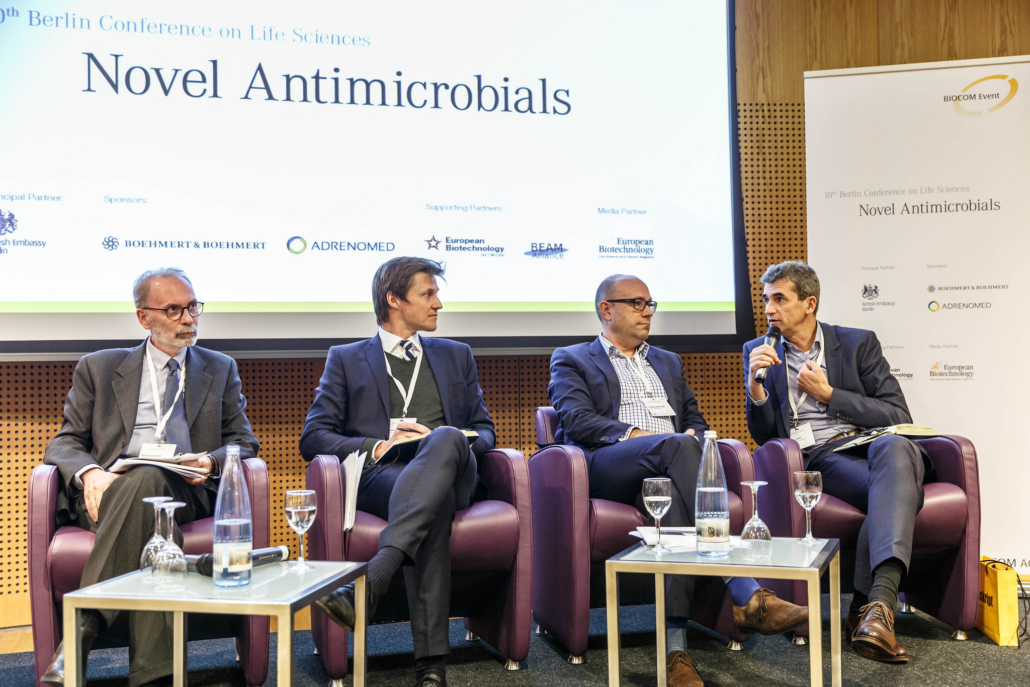
Antibiotic Resistance: EU SME alliance calls for specific support to thrive AMR R&D
The BEAM Alliance has called out worldwide stakeholders to support SME-driven innovation to revive the product pipeline fighting antimicrobial resistance (AMR). In a position paper the alliance representing roughly a fifth of the global 250 antibiotics developers describes what SMEs need to make their 100 pipeline drugs a success in fighting AMR.
To date, R&D funding is mainly focussed on Public-Private Parterships (PPP) such as the Innovative Medicines Initiative Programme NewDrugs4BadBugs (2012-2019), GARDP, the Global Antibiotic Research & Development Partnership (2016-…) and CARB-X (Combating Antibiotic Resistant Bacteria Biopharmaceutical Accelerator), the latter focussing on supporting SMEs with preclinical-Phase I studies against Gram-negative bugs. However, AMR innovation driven by SMEs needs even more of these initiatives and further steps which address the specific conditions of the AMR pioneers. SMEs carry the hope for the coming decades and it is of upmost importance that policymakers and countries involved in the fight against AMR make sure their policies are laser focused on SMEs need and none is left behind until the ecosystem is properly revived, Marie Petit, coordinator of the BEAM alliance stressed. In a position paper published today, the BEAM alliance (link) seize the recommendations made by the OECD in June 2017 to focus funding for AMR R&D in academia and SMEs into a G20 global collaboration platform; support promising R&D programmes targeting the WHO priority list of antibiotic-resistant bugs; and find refinancing mechanisms for antibiotics development that are independent from sales volume.
Specifically, the BEAM Alliance calls on policymakers to implement 10 recommendations to support SME-driven innovation in the AMR therapeutics and diagnostics space. The alliance particularly demands that policymakers understand the specific nature and needs of SMEs to design effective PUSH and PULL mechanisms.
1. Adequately-shaped incentive mechanisms that ultimately rewards R&D evidence
2. Health Technology Assessment recognising the true value of SME innovation
3. Dedicated regulatory pathways to support the specific needs of AMR projects and act as pre-qualification criteria to some PUSH/PULL incentive mechanisms
4. PUSH incentives and funding mechanisms that are directed to SMEs, calibrated and accessible for SMEs in practice
5. Calibrated Market Entry Rewards (MER) to ensure continuous and sustainable innovation from academics to biotech companies and to large pharma players
6. R&D prizes and phase entry rewards as effective PULL mechanisms for SMEs to incentivise the most underserved indications in AMR
7. Targeted tax incentives specifically addressing SMEs to incentivise private investments into AMR-focused companies and/or avoid de-prioritization
8. Going beyond to exploit all possibilities for AMR from SMEs
9. Support education to strengthen attractiveness of the field for R&D professionals/scientists
10. Long term thinking and wisely usage of AMR innovations combined with appropriate diagnostics development.
SMEs are the crucial innovation engine in the AMR field. Addressing the specific requirements of SME-driven innovation within current AMR initiatives is key in order to provide patients with effective drugs that can win the fight against AMR, said Marc Lemonnier, Board Member of the the BEAM Alliance and CEO of French Antabio SAS.
In March 2018, the BEAM alliance together with BIOCOM AG will for the second time invite key players to a one-day-conference, to address the specific challenges of SMEs in developing new antimicrobials and AMR diagnostics. The event, co-supported by the German Fraunhofer Society and the IMI’s "European Gram Negative Anti-Bacterial Engine" (ENABLE) consortium, will feature more than 40 lectures. Last year’s 10th Berlin Conference 2018 attracted more than 200 high-level representatives from policy, academia, industry and the finance sector.
Despite the lack of global statistics on AMR, some experts estimate that antimicrobial resistance (including tuberculosis) causes 700,000 deaths annually. In 2017, the European Commission updated its 2012 Action Plan against Antimicrobial Resistance and the G20 announced to establish a global R&D collaboration hub and market incentives to boost drugs to fight AMR. An overview of R&D programmes was published last year by the WHO.


 Freepik.com
Freepik.com
